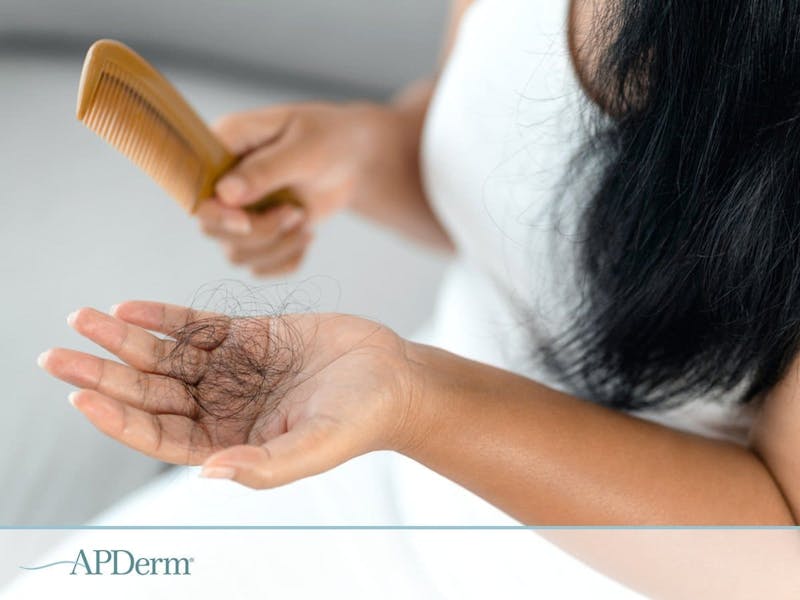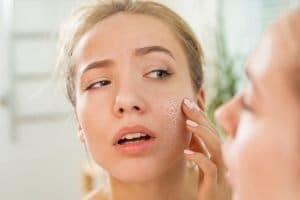Your Family Deserves the Best Care Book an Appointment
Your skin health matters, so don’t delay. Our clinicians look forward to treating you and your family at one of our local New England practices.
Find Your Nearest APDerm Center
April is Stress Awareness Month and we’re shedding light on how this common but negative emotional state can also negatively impact your complexion.
Every April, we observe Stress Awareness Month across the globe. This day was created in 1992 as a way to shed light on the dangers of chronic tension, as well as ways to combat this modern-day epidemic. Recent statistics released by the American Psychological Association revealed that around 75% of Americans experience stress-related symptoms on at least a monthly basis, the effects of which can be both mental and physical. It can also take a toll on your skin.
When you are going through a stressful period, it usually shows. This is because it can have an impact not just on your body and mind but also on your complexion. Here are some of the ways your high-tension lifestyle can show up in your skin.
When we are stressed, our bodies produce a hormone called cortisol. This hormone also happens to encourage your sebaceous glands to produce more oil which can lead to a shiny face as well as breakouts.

If you are someone who suffers from a skin condition, such as rosacea, psoriasis, or eczema, you might struggle with flare-ups more when you are stressed. This is because feeling constantly anxious can lead to inflammation in the body.
The same hormones that can cause oiliness can also cause collagen and elastin – the proteins in the skin that keep it youthful and firm – to break down more rapidly. This can then lead to fine lines and wrinkles.
When we are experiencing high levels of stress, it can make our hair follicles go into a resting phase. These can then fall out after a few months, leading to thinning and more hair loss than usual.

Our nails need a lot of vitamins and minerals, such as protein, zinc, magnesium and iron. When we’re stressed, our bodies don’t absorb them as effectively, which can lead to your nails becoming more brittle.